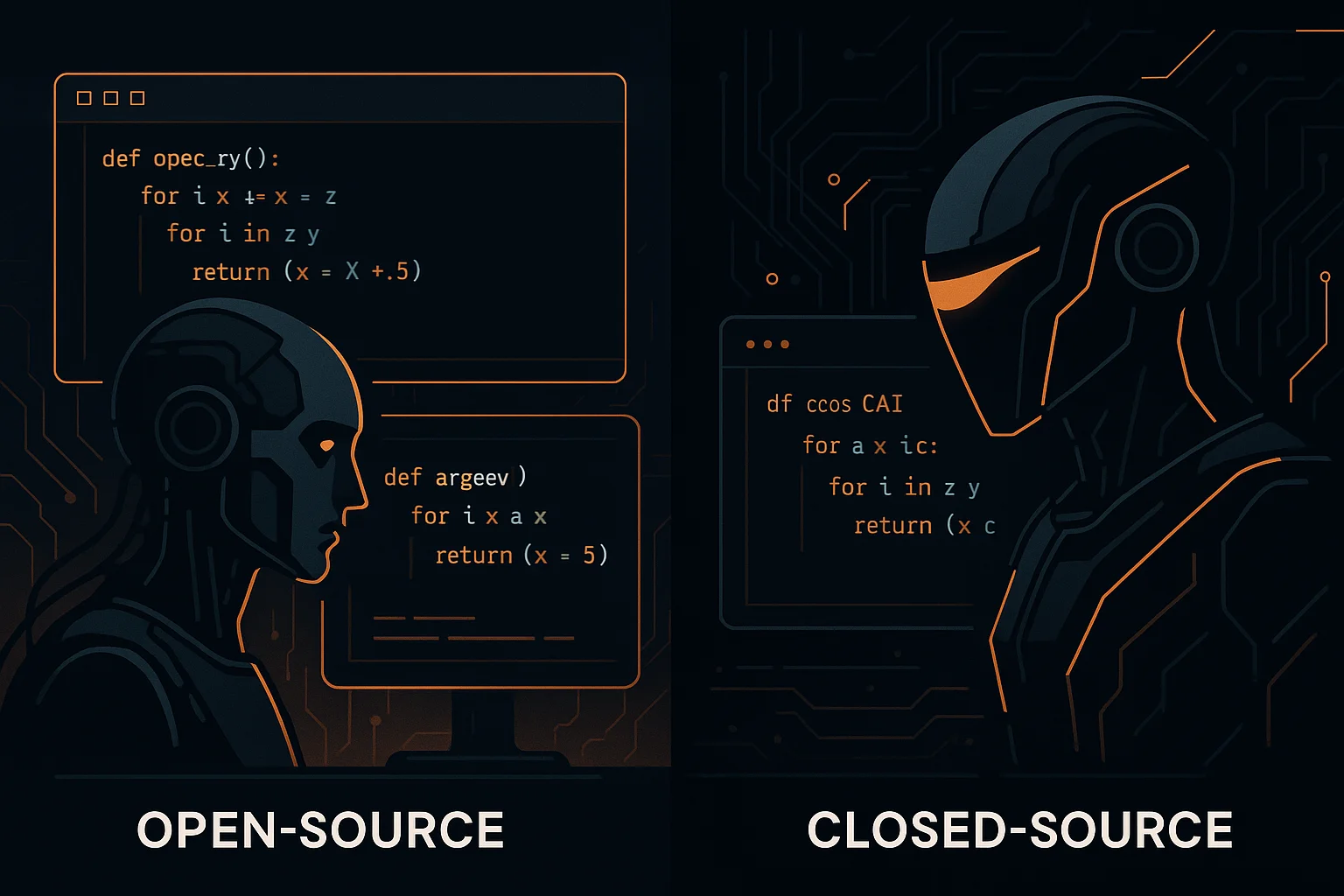Top Source Code Review Tools: An In-Depth Comparison

Choosing the right code review stack can dramatically impact your team's productivity, compliance posture, and onboarding experience. In 2025 the smartest engineering leaders mix trusted open-source foundations with AI copilots like Propel Code to keep developers moving fast without sacrificing rigor. This guide dives deep into the open-source landscape so you can decide where self-hosted tools make sense, and when to pair them with automation.
We built this analysis on customer interviews, competitive benchmarking, and hands-on bake-offs with the repositories most teams rely on to evaluate automated review. Use it alongside our automation playbook when planning your 2025 roadmap.
Key takeaways
- Open-source still anchors compliance-heavy teams: SonarQube, Review Board, and Gerrit offer self-hosting, audit trails, and customization that regulated industries demand.
- Pair deterministic checks with AI copilots: Propel Code sits on top of open-source scanners to summarize risk, route reviewers automatically, and provide policy automation without migrating away from GitHub.
- Budget for ownership: Even “free” tools require maintenance, plugin vetting, and infrastructure. Estimate internal costs before comparing to SaaS platforms.
- Hybrid stacks win: The highest-performing teams run open-source analysis in CI, then rely on Propel Code to deliver AI explainability, analytics, and governance.
How we evaluated open-source review tools
Our evaluation framework covered eight dimensions that matter most when deciding if an open-source solution belongs in your stack or if a managed platform is worth the premium.
- Deployment model: Installation complexity, upgrade cadence, and container support.
- Workflow coverage: Branch protections, pull request automation, reviewer assignment, and comment UX.
- Integration depth: GitHub/GitLab connectors, IDE plugins, REST/GraphQL APIs, and webhook flexibility.
- Security posture: SSO, audit logs, RBAC, SCIM, and compliance artefacts.
- Rule libraries: Out-of-the-box checks, language breadth, and community marketplace health.
- Scalability: Performance on monorepos, horizontal scaling support, and background job workers.
- Total cost of ownership: Infrastructure, admin effort, custom development, and training requirements.
- AI readiness: Ability to export findings into AI copilots like Propel Code for combined deterministic + contextual review.
Open-source comparison matrix
Use the matrix below to shortlist tools based on licensing, maintenance expectations, and how easily they combine with Propel Code's AI review engine.
| Tool | License | Best for | GitHub integration | Pairing with Propel Code |
|---|---|---|---|---|
| SonarQube Community | LGPLv3 | Static analysis baseline across 15+ languages | GitHub App, webhook integration, quality gate status checks | Feed scan results into Propel Code policies to block merges on critical issues while AI summaries focus on logic. |
| Review Board | MIT | Compliance-heavy teams needing document review | GitHub and GitLab connectors plus extensible APIs | Sync approvals into Propel Code to trigger policy automation and AI reviewer briefs. |
| Gerrit | Apache 2.0 | Organizations enforcing gatekeeper workflows and patch sets | Requires replication to GitHub or native hosting | Use Propel Code to summarize complex patch series and alert when ownership rules are violated. |
| Phabricator / Phorge | Apache 2.0 | Highly customizable workflows, differential reviews | Requires custom bridges or migration to GitHub for checks | Export differential metadata into Propel Code to maintain analytics during migration. |
| Semgrep Code | Business source (free up to threshold) | Policy-as-code security scanning and custom rules | CLI with GitHub Actions integrations | Pipe rule findings into Propel Code comment webhooks so reviewers see context and suggested remediation. |
Tool spotlights
SonarQube Community + Developer editions
SonarQube remains the bedrock for static analysis. The community edition handles core rules and is perfect for piloting automated gating. When teams upgrade to Developer or Enterprise tiers they unlock branch analysis, portfolio views, and commercial support. Pair SonarQube with Propel Code to translate raw rule identifiers into human-readable AI summaries and auto-assign reviewers based on ownership.
Review Board
Review Board excels when you need airtight audit logs, document review, and custom checklists. Its extension framework lets you build bespoke review requirements with Python, while the MIT license keeps legal teams comfortable. We see enterprises syncing Review Board's approvals into Propel Code to guarantee policies match internal controls and to expose reviewer load analytics.
Gerrit
Gerrit's patch-set workflow is unmatched for projects that demand incremental review and gatekeeper approval. The tradeoff is operational complexity: managing replication to GitHub or GitLab, configuring submit queues, and training developers on change sets. Propel Code alleviates the learning curve by auto-summarizing patch series and nudging reviewers when risk climbs.
Phabricator / Phorge
Although the original Phabricator project sunsetted, the community-driven Phorge fork keeps it alive. Its strength lies in fully customizable workflows across code review, tasks, and knowledge management. Many teams use Phorge during long migrations, exporting review data into Propel Code so AI summaries and policy automation continue even as repositories shift to GitHub.
Semgrep Code
Semgrep Code gives security teams programmable rules to catch risky patterns, secrets, and supply chain issues. Because rules run locally or in CI, you retain control over data flow. When paired with Propel Code, Semgrep findings become contextual inline guidance, elevating security awareness without overwhelming reviewers.
Pairing open-source foundations with Propel Code
The strongest review programs lean on open-source tools for deterministic checks while using Propel Code to orchestrate the human workflow. Here is a proven blueprint:
- Run static analysis in CI: Execute SonarQube or Semgrep on every pull request and expose results as status checks.
- Send findings to Propel Code: Use webhooks or the Propel Code CLI to attach scan output, letting AI summarize impact and recommend owners.
- Automate policies: Configure Propel Code to block merges when critical issues appear, escalate to security champions, and alert reviewers in Slack.
- Measure outcomes: Track cycle time, automated fix adoption, and false positive rates inside Propel Code's analytics to justify continued investment.
Cost planning and risk mitigation
Self-hosted tools still incur infrastructure and staffing costs. Before committing, build a simple cost model covering compute, monitoring, storage, upgrades, and the people hours to manage everything. Compare that to a managed service or a hybrid approach where open-source handles scanning and Propel Code handles orchestration.
Also account for business continuity. Create SOPs for backups and disaster recovery, and confirm your legal team is comfortable with each license. Document how data flows between tools so privacy audits sail through.
Selection checklist
- Do we have the platform engineering bandwidth to host and patch this tool?
- Can it integrate cleanly with GitHub or will we need to maintain mirrors?
- How easily can Propel Code ingest its findings for AI summaries and policy automation?
- Is there an exit strategy if we migrate to a managed platform later?
- Which KPIs (review latency, bug escape rate, audit readiness) will prove success?
Open-source code review tools unlock flexibility and control, but pairing them with Propel Code's automation ensures you do not spend senior engineer cycles stitching everything together. Start small, measure relentlessly, and evolve your stack as your repos and compliance requirements grow.
Ready to Transform Your Code Review Process?
See how Propel's AI-powered code review helps engineering teams ship better code faster with intelligent analysis and actionable feedback.

